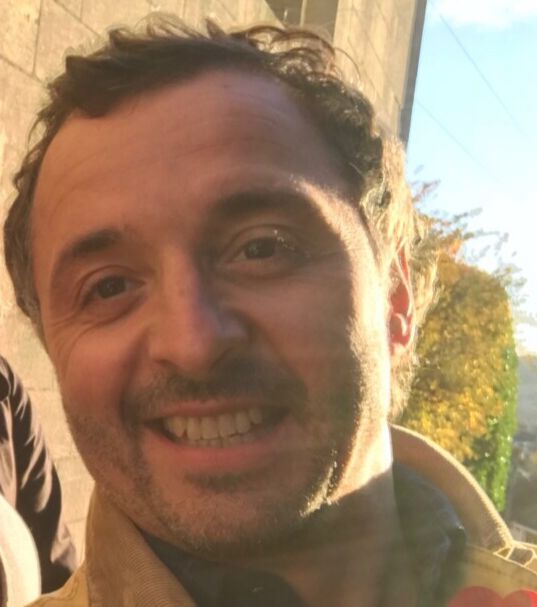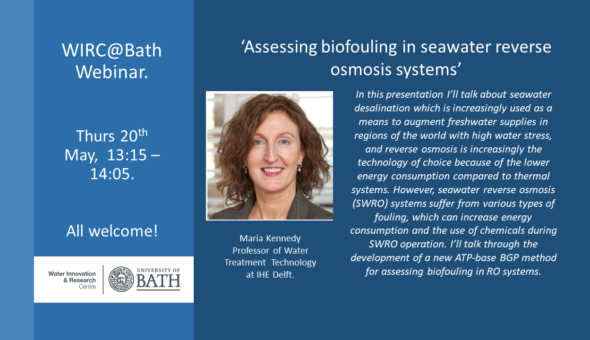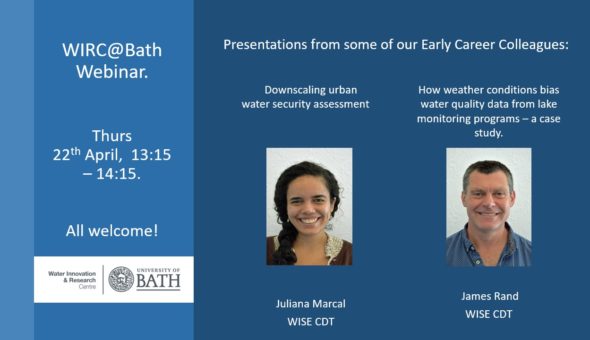This February sees the next talk in the monthly 'Water Colloquium' series organised by WIRC @ Bath exploring the breadth of water research being undertaken at the University of Bath and beyond.
Title: Water treatment and resource recovery modelling
Speaker: Dr Benedek Plosz
When: Thursday 15 February 2018 at 1.15pm
Where: Room 3.6, Chancellors' Building, University of Bath (Location and maps)
Note: This event is free and open to all.
Abstract:
This talk will address some of the major global water challenges the world faces today, and draw on key areas in the field of urban water resource management and engineering mathematics. It is also to mark the end of my first year at University of Bath and at WIRC as a Reader, affiliated to the Department of Chemical Engineering.
The conventional activated sludge (CAS) process has been used for more than 100 years for wastewater treatment. CAS relies on bacteria to remove organic carbon, nitrogen and phosphorus from sewage. Current research, however, proposes a new approach whereby wastewater components are recovered rather than destroyed. I will discuss the novel low-sludge age enhanced biological phosphorus, nitrogen and carbon separation and recovery (EBP2R) process that can potentially increase carbon recovery and decrease nutrient loads on AD, as well as provide a balanced culture medium for downstream nutrient recovery via photobioreactor unit operation.
Besides resource recovery, the elimination of real pollutants, notably, pharmaceuticals and other organic trace pollutants represent a major challenge in conventional wastewater treatment systems. Innovative treatment technologies and chemical risk assessment tools will be discussed.
Finally, the increasing frequency of hydraulic shock events – as a result of climate change – necessitates more effective operation and control of sewage treatment works (STW) in the future. I will present an innovative sensor and modelling framework to optimise the control of the secondary settling tanks - the most hydraulically sensitive unit operation in STWs.
Contact: Please email Sarah Eliot if you need any further information.
Respond




